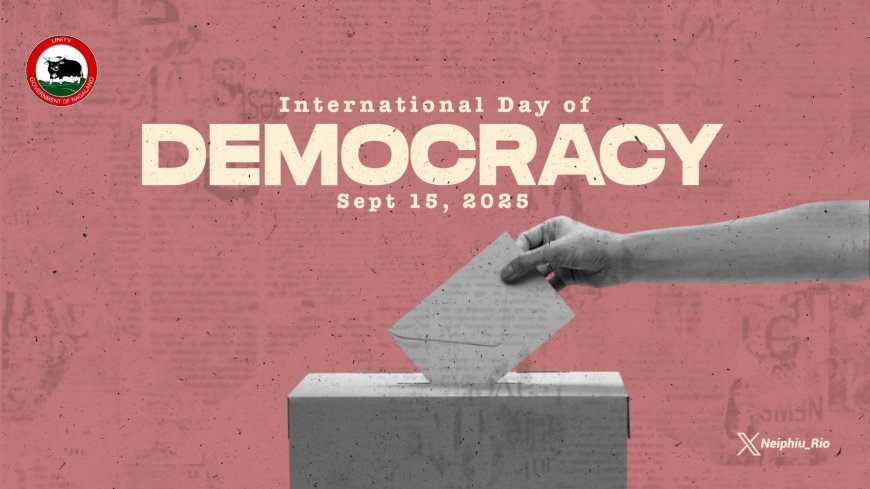India Observes Democracy Day Amid Kashmir Governance Debates
India observes Democracy Day, reflecting on constitutional values and Kashmir governance debates, highlighting rights, duties, and representation.

Introduction
India, known as the world’s largest democracy, observes Democracy Day to remind citizens of their rights, duties, and the strength of participatory governance. The occasion often sparks deeper political conversations, and this year, the spotlight has been on Kashmir’s governance debates. The discussions reflect the complexities of democracy in a region that has seen decades of political, cultural, and social challenges.
History of Democracy Day in India
Democracy Day in India is rooted in the country’s constitutional values. It is often observed in reference to January 25, celebrated as National Voters’ Day, or September 15, which the United Nations marks as International Day of Democracy. India commemorates such days to honor the struggles of freedom fighters, the vision of the Constitution’s framers, and the responsibility of sustaining democratic values.
The day is also symbolic of India’s journey since 1950, when the Constitution came into force, laying the foundation of a parliamentary democracy.
Why India Observes Democracy Day Amid Kashmir Debates
The focus on Kashmir governance during Democracy Day highlights the sensitive issues surrounding autonomy, security, and representation. Since the abrogation of Article 370 in August 2019, debates continue over:
-
The status of local governance and statehood restoration.
-
Representation of Kashmiri citizens in national and local bodies.
-
The balance between security measures and democratic freedoms.
By bringing Kashmir into the conversation on Democracy Day, India reaffirms its commitment to ensuring that democratic values reach every corner of the nation, including regions facing political sensitivities.
When Is Democracy Day Celebrated?
-
National Voters’ Day – January 25, established in 2011 by the Election Commission of India to encourage electoral participation.
-
International Day of Democracy – September 15, observed globally following the UN General Assembly resolution in 2007.
-
India aligns with both occasions, making them opportunities to reflect on governance, representation, and reforms.
Who Declared These Days?
-
National Voters’ Day was declared by the Government of India.
-
International Day of Democracy was initiated by the United Nations.
Both aim to strengthen the democratic process, improve participation, and remind governments of their accountability to the people.
Key Points & Latest Updates
-
Democracy Day highlights India’s democratic journey since independence.
-
Kashmir governance remains a central debate, focusing on statehood and elections.
-
Voter education and electoral reforms are emphasized.
-
Civic bodies encourage youth participation in politics.
Drawbacks and Challenges
-
Low Voter Turnout: Despite awareness drives, urban apathy remains an issue.
-
Regional Conflicts: Political unrest in areas like Kashmir complicates democratic participation.
-
Misinformation: Fake news and propaganda weaken informed decision-making.
-
Governance Gaps: Delays in statehood restoration in Jammu & Kashmir continue to raise concerns.
Significance of Democracy Day
The observance of Democracy Day is not just ceremonial but carries deep meaning:
-
Reinforces the value of electoral participation.
-
Reminds citizens of their role in governance.
-
Encourages inclusivity and representation across diverse communities.
-
Promotes transparency, accountability, and human rights.
Advantages
-
Strengthens citizen-government relationships.
-
Builds global recognition of India’s democratic model.
-
Motivates youth to actively participate in politics.
Disadvantages
-
Political polarization may overshadow democratic values.
-
Focus on contentious regions like Kashmir may deepen divides.
-
Ceremonial events may lack follow-through on practical reforms.
Positive & Negative Impacts
-
Positive: Encourages civic responsibility, boosts awareness of electoral rights.
-
Negative: Highlights unresolved governance challenges, particularly in conflict-prone regions.
Final Thoughts & Conclusion
India’s observance of Democracy Day amid Kashmir governance debates illustrates the dynamic, evolving nature of democracy in the country. While the occasion celebrates India’s democratic legacy, it also serves as a reminder of the challenges yet to be addressed. Strengthening electoral reforms, ensuring fair representation, and resolving regional governance issues are critical for democracy to thrive. Ultimately, Democracy Day stands as both a celebration and a call to action—to uphold the values of justice, equality, and liberty enshrined in the Indian Constitution.

 Ellofacts
Ellofacts 





